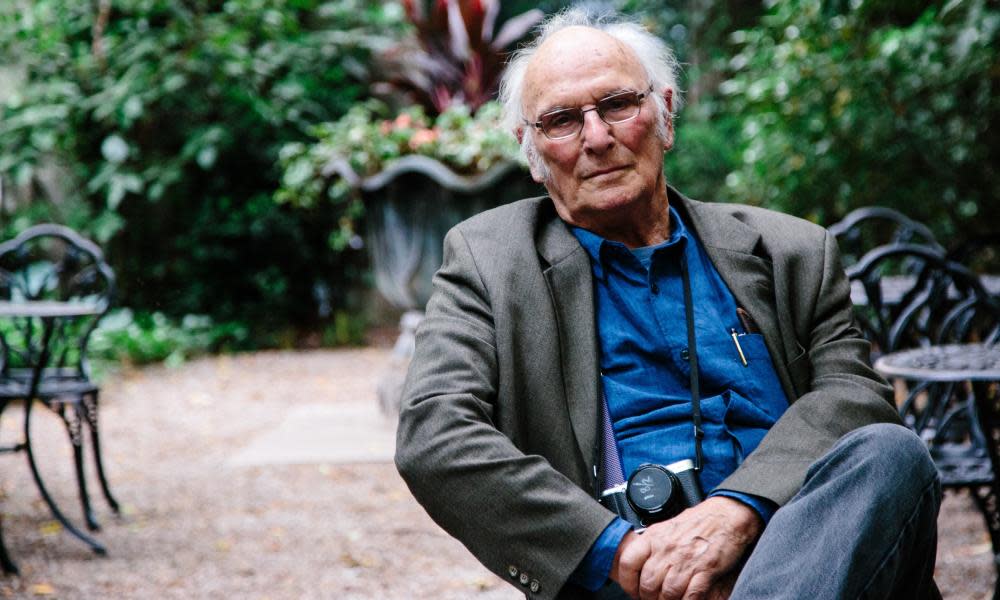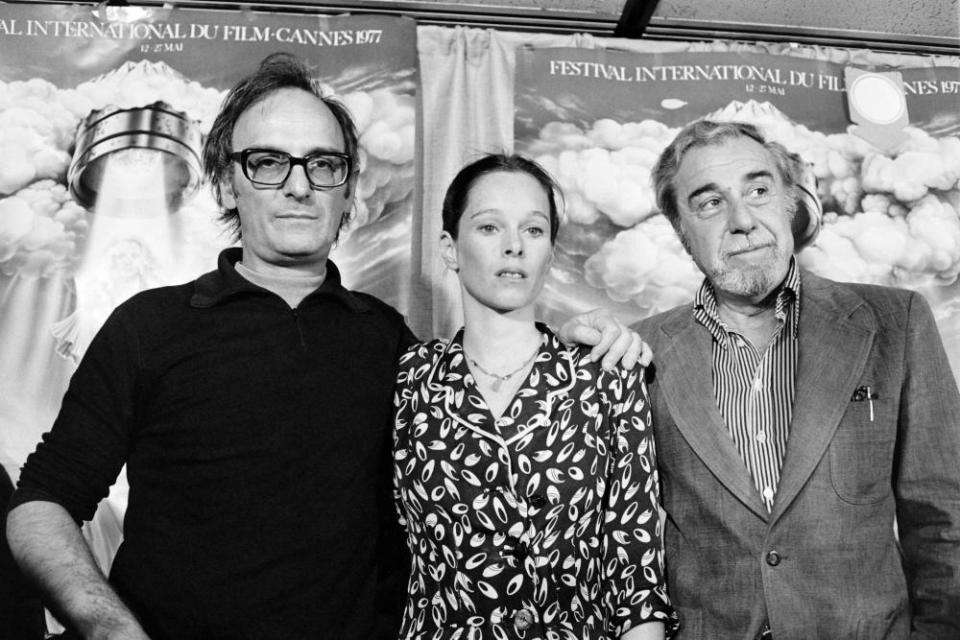Spanish film-maker Carlos Saura, director of ¡Ay Carmela!, dies aged 91

Veteran Spanish film-maker Carlos Saura, director of award-winning films such as Peppermint Frappé, ¡Ay Carmela! and Tango, has died aged 91, the day before he was due to receive a lifetime achievement award at the Goyas, Spain’s version of the Oscars.
Spain’s Academy of Cinematographic Arts and Sciences, the body that hands out the Goya awards, confirmed his death on social media, saying: “Saura, one of the essential film-makers in the history of Spanish cinema, has died at home today at the age of 91, surrounded by his loved ones. His final film, Walls Can Talk, came out last week and demonstrated his tireless activity and his love for his work until the very last moment.”
Antonio Banderas, who appeared in two of Saura’s films, the 1993 revenge thriller ¡Dispara! (or Outrage) and the 1984 obsessive-love drama Los Zancos, said on social media: “With Carlos Saura dies an incredibly important part of the history of Spanish cinema. He leaves behind a body of work that is indispensable when it comes to reflecting deeply on how human beings behave. Rest in peace, friend.” Spain’s prime minister Pedro Sánchez added: “His talent is, and always will be, the cultural heritage of our history thanks to unforgettable films such as ¡Ay Carmela! and Cousin Angelica. We bid farewell to a director of the imagination, but his cinema will stay with us.”

Born in Huesca in north-east Spain in 1932, Saura’s childhood was blighted by the Spanish civil war which started four years later. His father was a tax official for the Republican government, and the family was continually forced to move as the Francoist forces advanced. The civil war inevitably left its mark on his work: his 1966 feature The Hunt, which won his first major award at the Berlin film festival, was about a group of former Francoist soldiers who end up arguing and then shooting each other during a rabbit hunt. Cousin Angelica, released in 1974, was greeted with protests by rightwingers for its central character’s reenactment of experiences during the civil war, and a Barcelona cinema where it was showing was firebombed. Cría Cuervos (Raise Ravens), starring Spirit of the Beehive’s Ana Torrent, was shot in 1975 while Franco was still living, but released in 1976 after his death to acclaim for its symbolic portrayal of life under dictatorship.
Raise Ravens also featured a performance by American actor Geraldine Chaplin (otherwise best known for her work with Robert Altman); the pair met when Saura had cast her in the 1967 thriller Peppermint Frappé and would go on to make nine films together including the Oscar-nominated Mama Turns 100, as well as remaining in a relationship until 1979.
Related: Carlos Saura: ‘Franco took so long to die we had time to buy champagne’
In the 1980s, as interest in political material waned, Saura turned to celebrating flamenco; his 1981 adaptation of Lorca’s Blood Wedding featuring celebrated flamenco dancer Antonio Gades, was the first in a trilogy; it was followed by Carmen in 1983 (gaining Saura a second Oscar nomination), featuring Gades alongside Laura del Sol and guitarist Paco de Lucía, and El Amor Brujo in 1986, again featuring Gades.
In the 90s Saura mined the civil war again in ¡Ay Carmela!, this time for humour, telling the story of a republican theatre troupe who are captured by nationalists and are forced to put on a show for them. Tango, in 1998, a heady Argentina-set drama about a theatre director’s infatuation with a dancer, earned Saura a third Oscar nomination for best foreign language film. Later films include Salomé (2002), a flamenco version of the biblical story, and I, Don Giovanni (2009), about Mozart’s librettist Lorenzo da Ponte.
Aside from his relationship with Chaplin, Saura was married three times, to Adela Medrano, Mercedes Pérez and Eulalia Ramón, and had seven children

 Yahoo Movies
Yahoo Movies 
